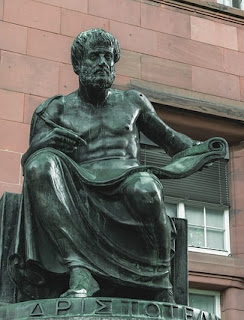So what is the image of fallen human beings?
Follow me on this quest through the eyes of one of the greatest late 19th and early 20th century theologians. This quest is a real eye opener for me and it will also be for you.
Now we move on to look at the following.
- 1. Life or existence itself
- 2. Soul and body and their capabilities
- 3. Knowledge in the mind and holiness in the will (with scriptural proofs)
- 4. Natural good and moral good
- 5. Human dominion over nature
We will now look at these sections individually and reflect on what Herman Bavinck the Master Theologian is explaining to us.
Life and Existence Itself (1)
So, after the Fall we deserved to die but this did not happen, God still poured out his love for the human race, Genesis. 4:2 “I have gotten a man child with the help of the Lord” Eve cried out””.
At the same time however like the movement of the pendulum, “human life oscillates between Gods forbearance (patience) and his wrath “.
By davide-cantelli-H3giJcTw__w-unsplash
Herman Bavinck then gives us these references.
2 The earth was formless and void, and darkness was over the surface of the deep, and the Spirit of God was moving over the surface of the waters. Genesis 1:2
And the breath of the Almighty gives me life. Job 33:4
God’s Omnipresence and Omniscience. Psalm 139 all of it!
1 The burden of the word of the LORD concerning Israel.
Thus, declares the LORD who stretches out the heavens, lays the foundation of the earth, and forms the spirit of man within him, Zechariah 12:1
22 The LORD’S loving kindnesses indeed never cease,
For His compassions never fail. Lamentations 3:22
28 for in Him we live and move and exist, as even some of your own poets have said, ‘For we also are His children.’ Acts 17:28
Bavinck then goes on to say “ We have thus retained something of life, of immortality of the soul”.
I will now quote all of Pslam 139. I am using the New American Standard Bible, the older version.
God’s Omnipresence and Omniscience.
FOR THE CHOIR DIRECTOR. A PSALM OF DAVID.
1 O LORD, You have searched me and known me.
2 You know when I sit down and when I rise up;
You understand my thought from afar.
3 You scrutinize my path and my lying down,
And are intimately acquainted with all my ways.
4 Even before there is a word on my tongue,
Behold, O LORD, You know it all.
5 You have enclosed me behind and before,
And laid Your hand upon me.
6 Such knowledge is too wonderful for me;
It is too high, I cannot attain to it.
7 Where can I go from Your Spirit?
Or where can I flee from Your presence?
8 If I ascend to heaven, You are there;
If I make my bed in Sheol, behold, You are there.
9 If I take the wings of the dawn,
If I dwell in the remotest part of the sea,
10 Even there Your hand will lead me,
And Your right hand will lay hold of me.
11 If I say, “Surely the darkness will overwhelm me,
And the light around me will be night,”
12 Even the darkness is not dark to You,
And the night is as bright as the day.
Darkness and light are alike to You.
13 For You formed my inward parts;
You wove me in my mother’s womb.
14 I will give thanks to You, for I am fearfully and wonderfully made;
Wonderful are Your works,
And my soul knows it very well.
15 My frame was not hidden from You,
When I was made in secret,
And skillfully wrought in the depths of the earth;
16 Your eyes have seen my unformed substance;
And in Your book were all written
The days that were ordained for me,
When as yet there was not one of them.
17 How precious also are Your thoughts to me, O God!
How vast is the sum of them!
18 If I should count them, they would outnumber the sand.
When I awake, I am still with You.
19 O that You would slay the wicked, O God;
Depart from me, therefore, men of bloodshed.
20 For they speak against You wickedly,
And Your enemies take Your name in vain.
21 Do I not hate those who hate You, O LORD?
And do I not loathe those who rise up against You?
22 I hate them with the utmost hatred;
They have become my enemies.
23 Search me, O God, and know my heart;
Try me and know my anxious thoughts;
24 And see if there be any hurtful way in me,
And lead me in the everlasting way. Psalms 139
Reflection
To sum this up I think Paul says it really well in Acts 17:28 which is the same verse we quoted earlier
28 for in Him we live and move and exist, as even some of your own poets have said, ‘For we also are His children.’ Acts 17:28
Nasah’s Lander has sent us a beautiful panoramic view of Mars. https://mars.nasa.gov/insight/spacecraft/about-the-lander/
We enjoy these sorts of things, but God is so much greater. He is the Creator of the universe and Bavinck really understood this. God’s understanding is unfathomable and yet God loves us. Our life is a gift no matter who we are or where we live. This is a great place to start and if we talk about natural theology, All the great monotheistic religions would agree with Bavinck on this note. If you’re a theologian that want to discuss with your neighbour about the creative aspect of God, then I think this is great subject material. Herman Bavinck at every turn surprises me. We are so blessed to be able to listen to him. In schools Religious Studies can get boring for a teacher but I have to say that Bavinck has put meat on the bones of ethics and has given us new lenses to look through. I will continue to plough through Book 1. I have a couple more chapters still to do in book one. He touches on conscience a little bit later. He takes the philosophers to task and I feel he does a great job. We will get there eventually.








